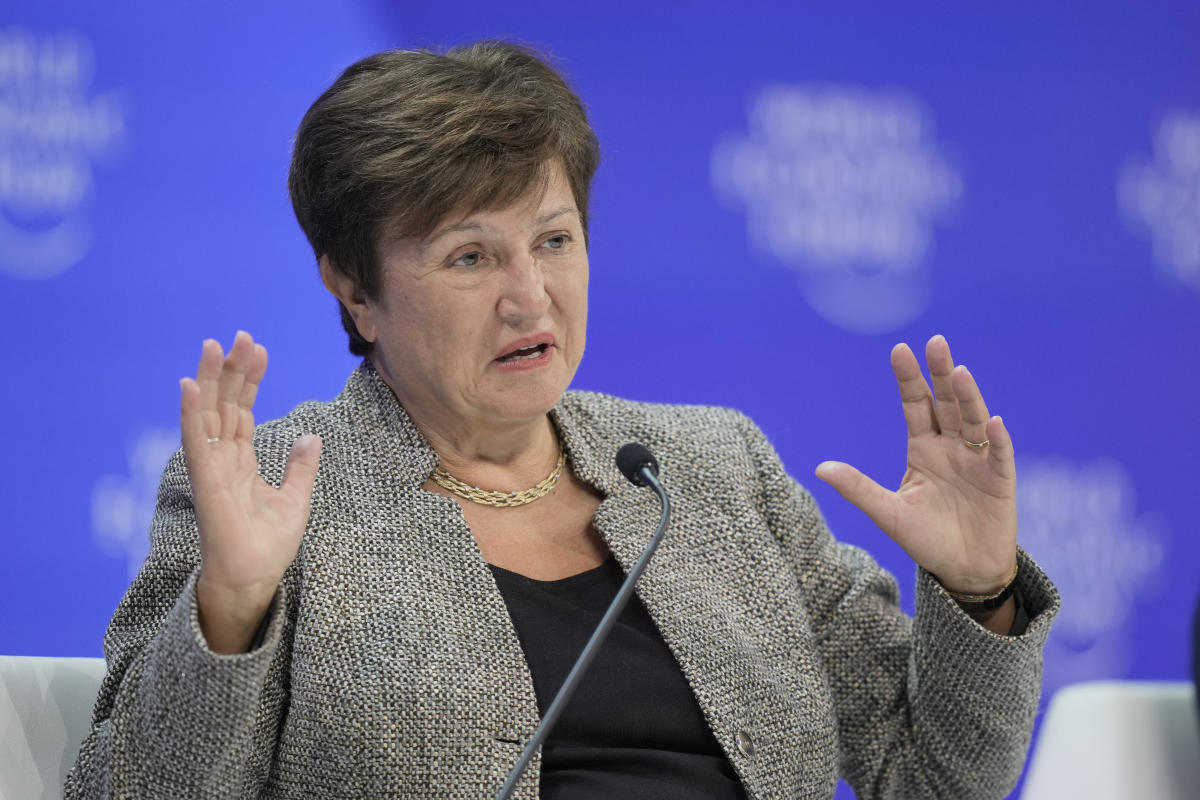
IMF Chief Georgieva Warns of Unresolved Concerns in Global Economy: Inflation, Debt, Productivity, and Gender Inequality
During a recent meeting of the International Monetary Fund (IMF) and the World Bank, IMF head Kristalina Georgieva expressed concern about the state of the global economy. While she acknowledged that the world economy has shown resilience in the face of challenges like higher interest rates and conflicts in Ukraine and Gaza, there are still areas of concern. One such concern is stubborn inflation, which, although down, is not completely eradicated. In particular, Georgieva highlighted the United States as an area of worry due to strong economic growth being met with a delay in bringing down inflation rates.
Another area of worry for Georgieva is rising levels of government debt worldwide. She noted that in 2021, government debts increased to 93% of global economic output, up from 84% in 2019. This increased spending was a response to the COVID-19 pandemic, where governments had to provide healthcare and economic assistance. Georgieva emphasized the importance of countries efficiently collecting taxes and managing public spending to build fiscal resilience for future shocks.
In terms of economic growth forecasts, the IMF has predicted a 3.2% growth for the global economy in 2024 and 2025, following a modest upgrade from previous forecasts for 2023. Despite this growth potential, it still lags behind historical growth rates due to factors like lack of significant improvements in productivity. Georgieva stressed that countries need to better match workers and technology and address aging labor forces that may limit economic growth potential.
Georgieva also highlighted differences in productivity gains between countries, noting that while Europe has seen better productivity gains compared to other regions globally. She attributed these differences to factors like regulatory efficiency, innovation facilitation, and energy costs. By reducing bureaucratic red tape, increasing women’s participation in the workforce, and fostering innovation through investment in research and development (R&D), countries could potentially boost their economic growth rates.
Overall, Georgieva’s message was clear: while there have been some successes amidst challenges facing economies around the world today, there is still much work to be done if we want sustained growth moving forward.
It should be noted that while this article summarizes key points made by IMF head Kristalina Georgieva during her speech at an international conference on finance and economics held earlier this year (year not specified), it does not necessarily reflect official policy positions or recommendations made by her organization or any other financial institutions involved in promoting sustainable development globally.

